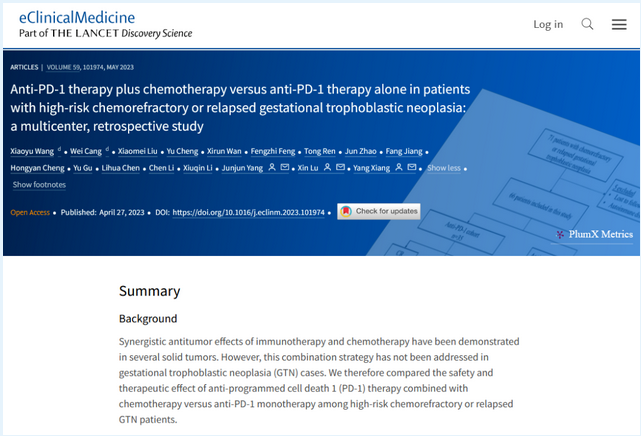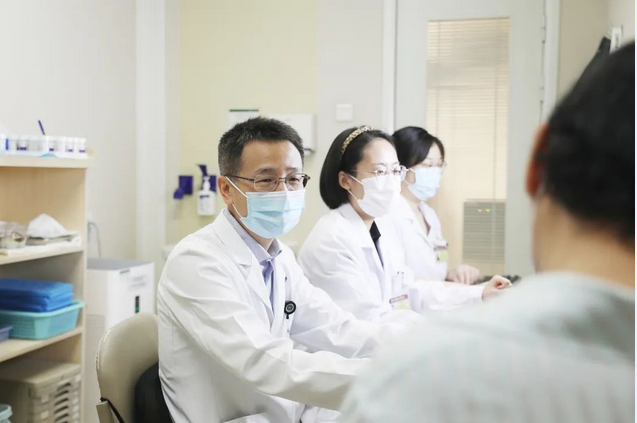Recently, a multicenter, retrospective study of high-risk chemorefractory or relapsed gestational trophoblastic neoplasia (GTN) initiated by Professor Xiang Yang’s team from PUMCH was published online in “eClinicalMedicine” (a “Lancet” journal) (IF:17.033). The study showed that anti-PD-1 therapy plus chemotherapy could be more effective than anti-PD-1 therapy alone for treating GTN and that patients not responding to PD-1 inhibitors can be effectively rescued with salvage chemotherapy. This is another important result after the team published online in “The Lancet Oncology” the world’s first prospective phase II clinical trial of immune checkpoint inhibitors in combination with anti-angiogenic drugs for the treatment of high-risk resistant/relapsed GTN, holding the potential for providing better evidence to inform the choice of treatment for these patients.

GTN is a relatively uncommon disease that is generally sensitive to initial chemotherapy. About 90% of patients can be cured with chemotherapy, but the rest 10% are refractory cases, developing drug resistance or relapsing after initial chemotherapy. Recent preclinical and clinical studies have shown that immunotherapy plus conventional chemotherapy have synergistic anti-tumor effects on a variety of tumors, but there are very few studies of this approach applied to GTN cases. PUMCH, the Obstetrics and Gynecology Hospital of Fudan University and Shengjing Hospital of China Medical University conducted a multicenter retrospective cohort studies of refractory GTN, which enrolled a total of 66 patients from August 2018 to March 2022.
The outcomes show that compared with anti-PD-1 monotherapy, PD-1 inhibitors combined with chemotherapy can significantly improve anti-tumor effects and increase the complete remission rate (CR) of GTN from 54.3% to 87.1%. For patients who do not respond to the PD-1 inhibitor therapy, clinical cure can still be achieved with late salvage chemotherapy using the previously unsuccessful regimen. This novel therapy has good clinical utility for patients with refractory GTN.

▲Dr. Xiang Yang (first from left) at outpatient clinic
Dr. Xiang Yang, Director of Gynecological Oncology Center of OBGYN department, provided further information of the study: it is a retrospective and non-randomized study; despite the limited cases, this is globally the largest reported analysis of patients with GTN receiving anti-PD-1 treatment. There is no universally accepted standards regarding the selection of combined treatment or monotherapy in patients with refractory GTN, thus the physician in charge needs to make the decision based on a comprehensive analysis of the patient’s individual situation. PUMCH is currently conducting a prospective clinical trial registered in “Clinical Trial” for patients with high-risk GTN resistant to multiple lines of treatment and relapsed GTN treated with PD-1 inhibitors in combination with chemotherapy, which is expected to provide more and better evidence to shape the future management of these patients.
Translated by Liu Haiyan
Edited by Yang Jie and Wang Yao
